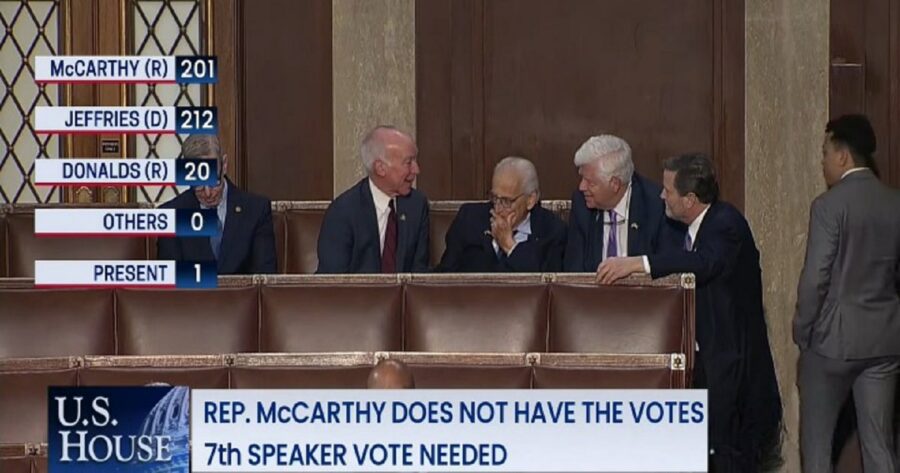Majority leader, Kevin McCarthy was defeated on six rounds of voting to become the next Speaker of the House of Representatives
On January 3rd and 4th, GOP leader Kevin McCarthy suffered defeat in six rounds of voting for the position of speaker of the U.S. House of Representatives. Despite being the frontrunner for the position, McCarthy was unable to secure the necessary support from his fellow Republicans.
The voting for speaker of the House is a complex process, with members casting secret ballots on the floor of the House. In order to be elected, a candidate must receive an absolute majority of the votes cast. If no candidate is able to achieve this majority, the voting continues until one candidate emerges victorious.
Over the course of two days, McCarthy participated in six rounds of voting but was unable to secure the support of the majority of his fellow Republicans. Even with the endorsement of former President Donald Trump, McCarthy still failed to secure the gavel, prompting members from his party to demand he withdraws his name from consideration to pave the way for another candidate to be chosen.
McCarthy’s defeat is seen as a major setback for the GOP, as he was widely seen as the party’s preferred candidate for the position. It is not yet clear who will step forward to replace him or whether the GOP will be able to unite behind a single candidate.
The speaker of the House is a powerful position, second only to the president in terms of its influence on the direction of the country. The inability of the GOP to choose a speaker is seen as a sign of deep divisions within the party, and raises questions about its ability to effectively govern.
As the search for a new speaker continues, it remains to be seen how the GOP will move forward and whether it will be able to present a united front in the face of the many challenges facing the country.









